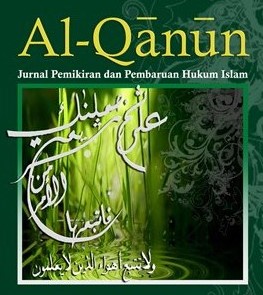Pengelolaan Dana Zakat Kontemporer
Mengentas Kemiskinan dan Solusi Meningkatkan Perekonomian Bangsa
DOI:
https://doi.org/10.15642/alqanun.2020.23.2.363-381Abstract
This research was conducted with the aim to find out the management of zakat in poverty alleviation and to find a model of contemporary zakat management in solutions to improve the nation's economy. The research method used is descriptive qualitative. The results of the study show that the management of zakat can alleviate poverty through the East Java Prosperous Program in the form of productive zakat funds in the form of venture capital assistance, skills training, and provision of business tools. Productive zakat funds are not funds for consumption mustahiq, but to be used mustahiq in business and improve their quality so that the productive zakat funds are not only used up once, but can support the life of mustahiq in the future until he turns into muzakki. The management of zakat in a contemporary perspective in this study is intended that Baznas can work together with sharia cooperatives which together become amil zakat. This model of cooperation in managing zakat can certainly benefit various parties, especially for Baznas, sharia cooperatives, and micro-entrepreneurs.
Downloads
References
Ali, Muhammad Daud. Sistem Ekonomi Islam Zakat dan Wakaf. Jakarta: UI-Press, 1988.
Djazuli, A., dan Yadi Janwari. Lembaga–lembaga Perekonomian Umat. Jakarta: Raja Grafindo Persada, 2002.
Febriyanti, Novi. “The Review of Islamic Law on the Distribution of Zakat Directly by Muzaki to Mustahik in the Sunan Ampel Religious Tourism Area in Surabaya.” Iqtishaduna 11, no. 2 (2020).
Hakim, Rahmad. Manajemen Zakat. Jakarta: Prenada Media, 2020.
Kuncoro, Mudrajad. Ekonomi Pembanguan: Teori, Masalah, dan Kebijakan. Yogyakarta: UPP AMP-YKPN, 2003.
Malik, Imam. Al-Muwaththa’. Diterjemahkan oleh Nur Alim. Jakarta: Pustaka Azzam, 2006.
Mubarok, Nafi’. “Lembaga Keuangan Syariah sebagai Mustahiqq Zakah.” Al-Qānūn: Jurnal Pemikiran Pembaharuan Hukum Islam 13, no. 2 (Desember 2010).
Nasution, Lahmuddin. Fiqh 1. Jakarta: Logos Wacana Ilmu, 1999.
Nawawi, Ismail. Manajemen Zakat dan Wakaf. Jakarta: VIV Press, 2013.
Nurhayati, Sri, dan Dodik Siswanto. Akuntansi dan Manajemen Zakat. Jakarta: Salemba Empat, 2019.
Qardhawi, Yusuf. Fiqhuz-Zakat. Diterjemahkan oleh Salman Harun. Jakarta: Pustaka Litera Nusantara, 2007.
Ravallion, M. Poverty Comparisons. World Bank, 2001.
Sabiq, Sayid. Fiqih Sunah. Diterjemahkan oleh Mahyuddin Syaf. Jakarta: Pena Pundit Aksara, 2006.
Syafi’i, Imam, dan M. Yasir Abd Muthalib. Kitab al-Umm. Jakarta: Pustaka Azzam, 2005.
Yudha, A. T. R. C., dan Nyda Dusturiya. “Model Pengembangan Kewirausahaan Sosial Berbasis Mahasiswa Pada Lembaga Amil Zakat.” El-Qist: Journal of Islamic Economics and Business (JIEB) 8, no. 1 (2018).
Zuhdi, Masjfuk. Masail Fiqhiah. Jakarta: Toko Gunung Agung, 1994.
Zuhri, Saefudin. Zakat di Era Reformasi. Jakarta: Raja Grafindo Persada, 2002.






